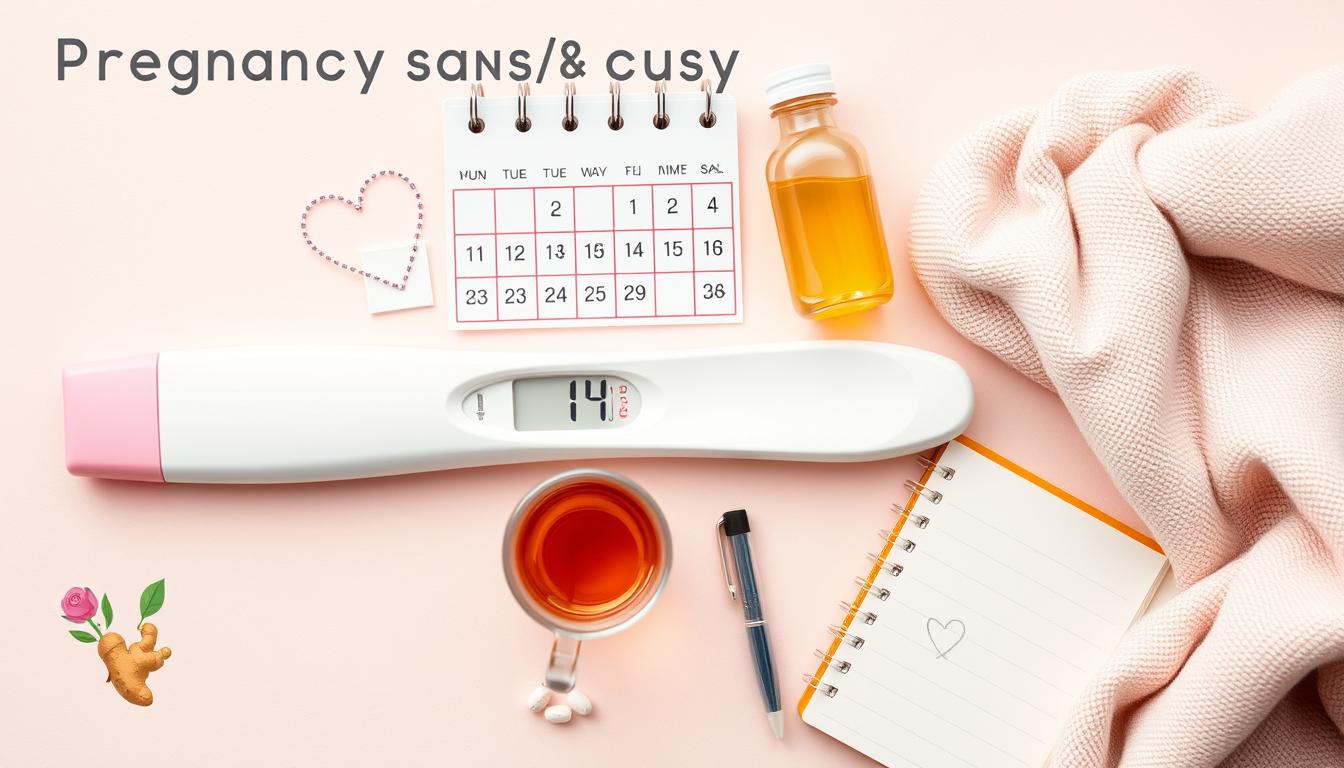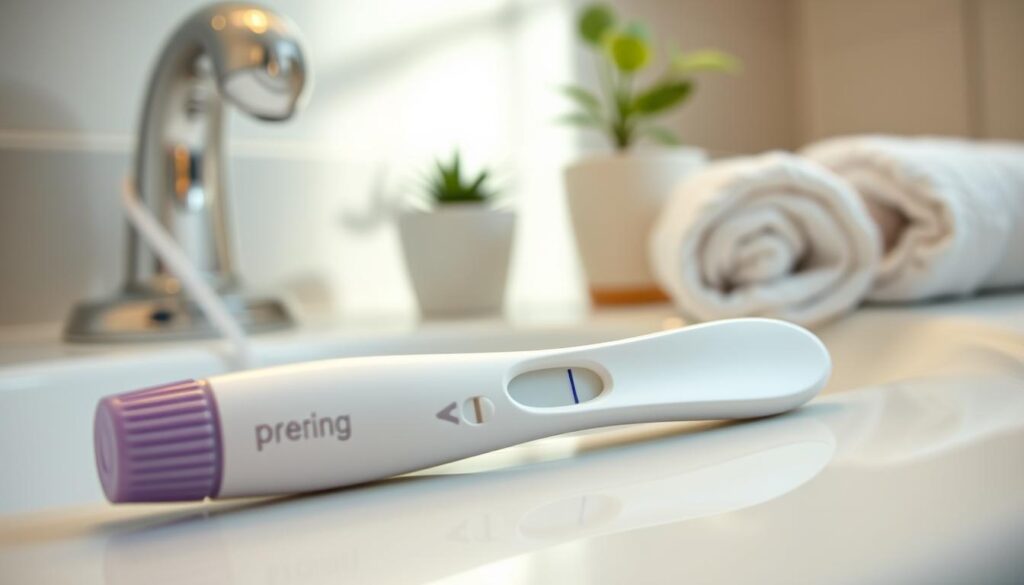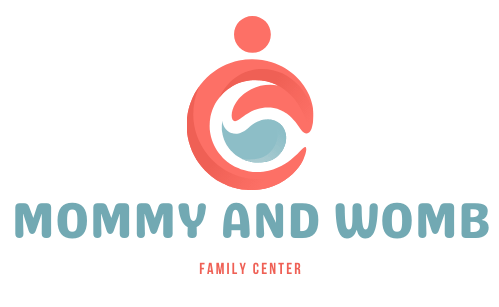Am I Pregnant? Signs and Symptoms to Look For

Waiting for a new life can be both thrilling and a bit scary. As you start your pregnancy journey, you might wonder, “Am I pregnant?” While the only sure way to know is to take a pregnancy test or see your doctor, there are signs that might suggest yes.
Table of Contents
Am I Pregnant? Signs and Symptoms to Look For
Missed Period
One of the most common early signs of pregnancy is a missed period. If you’re in your childbearing years and more than a week has passed without your period, you might be pregnant. A missed period or an irregular menstrual cycle can be an early sign of pregnancy.
Missing a period doesn’t always mean you’re pregnant. Stress, too much exercise, dieting, or hormone imbalances can also cause irregular periods. But if your period is more than a week late and you’re sexually active, it’s a good idea to take a pregnancy test.
- A normal menstrual cycle happens every 24-38 days.
- Home pregnancy tests can sometimes give false negatives in the first few days after a missed period.
- Clinical blood tests can find pregnancy as early as 6-8 days after ovulation or a day or two after a missed period.
The human chorionic gonadotropin (hCG) hormone starts being made when you’re pregnant. This hormone level doubles every two to three days in early pregnancy. It’s a reliable sign of pregnancy.
“If you suspect you might be pregnant, it’s best to take a pregnancy test or consult your healthcare provider.”
Noticing changes in your body can help you spot early signs of pregnancy, even before a missed period. Other common signs include feeling very tired, craving certain foods, needing to pee a lot, headaches, nausea, sore breasts, and spotting.
Tender and Swollen Breasts
Changes in your breasts are a common early sign of pregnancy. Hormonal shifts can make your breasts tender, sore, and swollen. This feeling is similar to how your breasts feel before your period, but more intense.
Breast pain can start even before you miss your period, as early as one to two weeks after conception. The sensitivity and swelling in your breasts may lessen after the first trimester as your body adjusts to the hormonal changes.
The Mayo Clinic notes that about 1 in every 1,000 pregnant women develop breast cancer. This poses serious risks to both the mother and the baby. If you notice any new or concerning changes in your breasts during pregnancy, it’s crucial to consult your healthcare provider.
“Your breasts may become larger and feel tender as early pregnancy symptoms start to appear.”
Other common breast changes during pregnancy include:
- Increased blood flow, causing blue veins to become more visible
- Changes in the size or shape of the nipples
- Development of Montgomery’s tubercles (oil-producing glands on the areolas)
- Nipple discharge, which can vary in color and amount
While breast pain and discomfort are generally nothing to worry about during pregnancy, it’s important to monitor any significant changes. Report them to your healthcare provider.
Nausea and Vomiting
Nausea, often called “morning sickness,” is a common early symptom of pregnancy. It can start as early as one to two months after conception. It can happen at any time of the day or night. Pregnancy hormones are believed to play a big role in causing nausea.
About half of all pregnant individuals experience vomiting due to nausea. In some cases, severe nausea and vomiting can lead to a condition called hyperemesis gravidarum. This condition requires medical attention.
“Morning sickness, characterized by nausea and vomiting during pregnancy, is experienced by many individuals, particularly in the first three months of pregnancy.”
Morning sickness usually starts around the sixth week of pregnancy. This is about two weeks after a missed period. It usually peaks between weeks 8-11.
For most women, the nausea and vomiting subside near the end of the first trimester. This is around 14 weeks into the pregnancy.
However, some women may still feel nausea in the second trimester. They may even feel it near the end of their pregnancy. If morning sickness lasts beyond the first trimester, it could be due to heightened sensitivity to hormonal changes or a delicate stomach.
Factors that can increase the risk of morning sickness and hyperemesis gravidarum include a history of nausea or vomiting. Prior experiences with morning sickness in previous pregnancies also increase the risk. Carrying twins or multiples also increases the risk.
While mild weight loss in the first trimester due to morning sickness is not harmful to the baby. Severe cases of morning sickness can lead to significant fluid loss. Or a loss of more than 5% of pre-pregnancy body weight. In such instances, medical treatment may be necessary.
Increased Urination
Many people notice they need to use the restroom more often when they’re pregnant. This is because your body is changing in the early stages of pregnancy.
Your blood volume increases to support your growing fetus. This means your kidneys have to work harder, leading to more trips to the bathroom. You might find yourself going up to 10 times a day, compared to 6-7 times for those who aren’t pregnant.
In the second trimester, you might see a slight decrease in bathroom visits. But, as your uterus grows, so does the pressure on your bladder. This can make urination more frequent again. After giving birth, some people still experience more urination for up to 6 weeks or more as their body adjusts.
If you’re feeling pain or burning while urinating, or think you might have a urinary tract infection (UTI), see your healthcare provider quickly. They can help manage your frequent urination and ensure your health and your baby’s well-being.
Doing pelvic floor exercises can also help with increased urination during and after pregnancy. These exercises strengthen the muscles that support your bladder and other organs. A healthcare professional can help you create a good exercise plan.
“Approximately 8% of pregnant people develop a urinary tract infection (UTI) according to a study by the Centers for Disease Control and Prevention (CDC).”
How do I know that I am pregnant?
If you think you might be pregnant, the only way to be sure is to take a home pregnancy test or have your doctor check. Home pregnancy tests are very accurate if used right. They can spot pregnancy soon after a missed period.
A positive pregnancy test means you might be pregnant. But, you should see your doctor to confirm the pregnancy and start prenatal care. Your doctor can do more tests, like a blood test for the hormone hCG, to check the pregnancy and its stage.
“To confirm pregnancy, doctors usually recommend a blood test measuring the hormone human chorionic gonadotropin (hCG).”
If your home pregnancy test is positive, book a doctor’s visit right away. They can offer advice, support, and the care you need during your pregnancy.
Remember, the only sure way to know if you’re pregnant is to take a pregnancy test and get it confirmed by a doctor. Watching for early signs and symptoms helps. But, a positive pregnancy test is the best proof of confirming pregnancy.
Fatigue
Feeling extremely tired is a common sign of early pregnancy. The Mayo Clinic says fatigue can start as soon as a week after conception. This makes it a key sign of pregnancy, even before a test confirms it.
The hormone progesterone increases quickly in the first trimester. This hormonal change is the main reason for the tiredness many pregnant people feel. It’s especially true in the first 12 weeks of pregnancy.
Fatigue affects people in different ways. Some feel extremely exhausted, while others just feel a bit more tired. By the third trimester, about 60% of pregnant women feel very tired. This is often due to the growing baby, pregnancy symptoms, stress, and doing too much at once.
“Fatigue is a common symptom during the first 12 weeks of pregnancy, affecting individuals differently.”
While feeling tired is normal during pregnancy, seek medical help if it’s severe. Look for signs like fever, chest pain, or vision changes. These could mean a serious issue that needs treatment.
Combating Pregnancy Fatigue
- Get 7 to 8 hours of sleep at night, the ideal amount for pregnant women to combat fatigue levels.
- Eat six small meals instead of three large ones to help stabilize blood sugar and energy levels.
- Incorporate the right kind of exercise, as it can be more rejuvenating and improve sleep quality.
- Follow the American College of Obstetricians and Gynecologists’ recommendation of getting at least 150 minutes of moderate aerobic activity each week during pregnancy to help manage fatigue.
Understanding why you’re tired early in pregnancy and finding ways to manage it can help. It makes the first trimester easier and prepares you for the journey ahead.
Other Possible Signs
Early pregnancy can bring more than just a missed period and tender breasts. Some people might notice moodiness, bloating, or light spotting, known as implantation bleeding. They might also feel food cravings or aversions, a metallic taste in the mouth, headaches, dizziness, cramping, mood swings, nasal congestion, and skin changes.
These signs might not be as common as the usual ones. Yet, they can hint at pregnancy. Symptoms like implantation bleeding and food cravings can show up just a few weeks after conception.
- Moodiness
- Bloating
- Implantation bleeding
- Food cravings or aversions
- Metallic taste in the mouth
- Headaches
- Dizziness
- Cramping
- Mood swings
- Nasal congestion
- Skin changes
Even though they’re not as common, these symptoms can signal pregnancy. If you’re experiencing any of these less common pregnancy symptoms, consider taking a pregnancy test or talking to your healthcare provider.
When Do Symptoms Start?
Pregnancy symptoms start at different times for everyone. Some women feel them a few days after conception. Others notice them weeks after missing their period. Most people start to feel early signs around the fifth or sixth week.
A study showed that 59 percent of women felt symptoms by their fifth or sixth week. By the end of week six, 71 percent reported symptoms. And by week eight, 89 percent experienced symptoms.
Some of the first signs of pregnancy include:
- Implantation bleeding, which can happen from 6 to 12 days after fertilization.
- Feeling very tired, which can start a week after fertilization.
- Morning sickness, a common symptom that usually gets better by the 13th or 14th week.
- Increased urination, which can start in the sixth or eighth week.
- Constipation due to higher levels of the hormone progesterone.
- Mood swings, especially in the first trimester.
Remember, when and how strong these symptoms are can vary a lot. If you think you might be pregnant, take a test or talk to your doctor.
Taking a Pregnancy Test
If you think you might be pregnant, it’s time to take a home pregnancy test or see your doctor. Home pregnancy tests are very accurate if used right. They can spot pregnancy early, even before you miss your period.
Most pregnancy tests sold in stores work 99% of the time after a missed period. But waiting at least a week after missing your period is best. This is because it takes 7–10 days after ovulation for enough HCG to show up on a pregnancy test.
Implantation, when the fertilized egg sticks to the uterine wall, happens around 10 days after conception. One-third of newly pregnant women might see implantation bleeding, which looks like a light period.
You can find home pregnancy tests in drug or grocery stores. They’re 98% to 99% accurate if used right. Unlike blood tests, which take hours or days, urine tests give results in minutes.

If the home pregnancy test shows you’re pregnant, see your doctor to confirm. They might also do a blood test. This can find small amounts of HCG and give accurate results within seven to 10 days after conception.
Conclusion
The early signs and symptoms of pregnancy can differ a lot from one person to another. Common signs include a missed period, tender breasts, nausea, more trips to the bathroom, and feeling very tired. These pregnancy symptoms might also have other causes.
To be sure if you’re pregnant, you should take a home pregnancy test or see your healthcare provider. They can confirm it for you.
If you think you might be pregnant, it’s key to take a test and schedule a visit with your healthcare provider. Starting prenatal care early is crucial for a healthy pregnancy and a safe birth for you and your baby.
Keep in mind, every pregnancy is different. The early signs of pregnancy you notice might not be the same as others. Listen to your body, trust your feelings, and seek professional advice if you’re unsure.
For more information about pregnancy, its symptoms, and everything related to it, please click on the link
https://www.mommyandwomb.com/pregnancy






